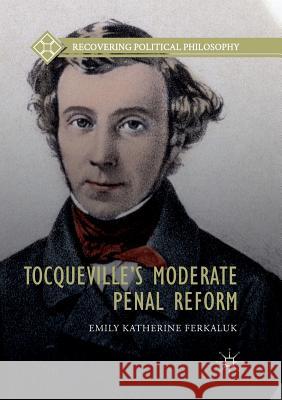Tocqueville's Moderate Penal Reform » książka
topmenu
Tocqueville's Moderate Penal Reform
ISBN-13: 9783030092696 / Angielski / Miękka / 2019 / 191 str.
Kategorie BISAC:
Wydawca:
Palgrave MacMillan
Seria wydawnicza:
Język:
Angielski
ISBN-13:
9783030092696
Rok wydania:
2019
Wydanie:
Softcover Repri
Ilość stron:
191
Waga:
0.25 kg
Wymiary:
21.01 x 14.81 x 1.12
Oprawa:
Miękka
Wolumenów:
01
Dodatkowe informacje:
Wydanie ilustrowane











